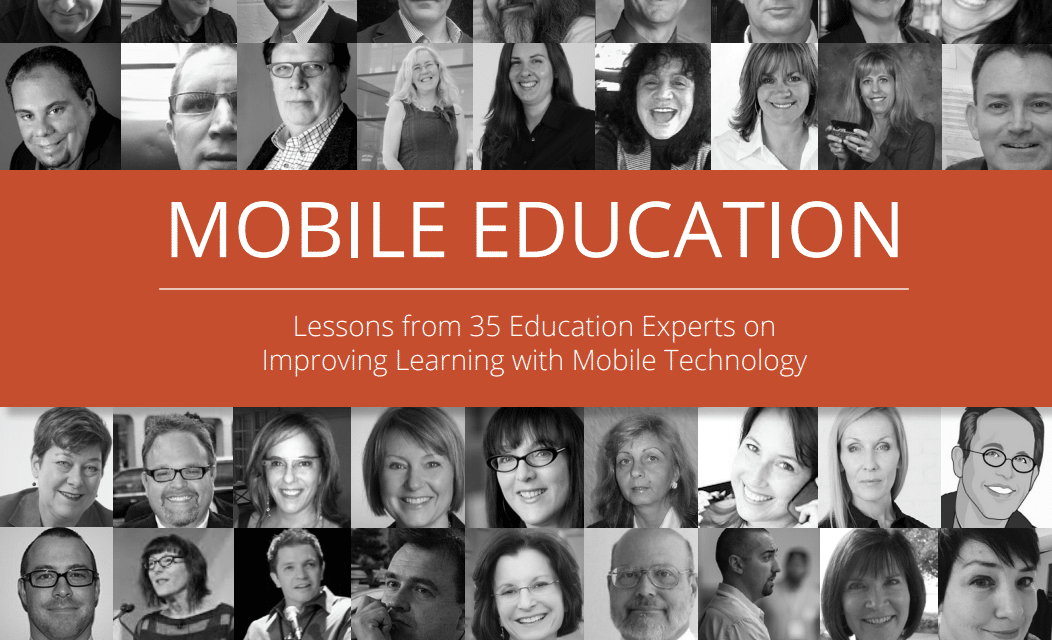The book includes insights from the following experts:
- Bryan Alexander, Founder and Principal, Bryan Alexander Consulting, LCC
- Adam Bellow, Co-Founder, Breakout, Inc.
- Benjamin Bonnet, Web Developer, Octo Consulting Group
- Imogen Casebourne, Director of Learning, LEO Learning
- Daniel Christian, Adjunct Faculty Member & Senior Instructional Designer, Calvin College
- Janey Clarey, Research Manager, Learning and Development, Bersin by Deloitte
- Grainne Conole, Professor of Education and Independent Consultant, Bath Spa University
- Alec Couros, Chief Openness Officer, Open Thinking
- Lisa Dawley, CEO & Founder, GoGo Labs, Inc.
- Wendy Drexler, Visiting Assistant Professor, Johns Hopkins University
- John Faig, Director of Technology, St. Patrick’s Episcopal Day School
- Jackie Gerstein, Online Adjunct Faculty for Departments of Education, Boise State University, Walden University, Western Governors’ University, AmericanIntercontinental U
- David Hopkins, Trustee, Learn Appeal
- Malinka Ivanova, Associate Professor, Technical University – Sofia, College of Energy and Electronics
- Rick Kiker, Founder & CEO, Google Education Partner, Kiker Learning
- Kyle Pace, Instructional Technology Coach, Grain Valley Schools
- Lee Kolbert, Manager – Performance Accountability, Palm Beach
- Nicholas Provenzano, Chief Nerd, Consultant
- Clark Quinn, Executive Director, Principal, Quinnovation, Internet Time Alliance
- John Robinson, The 21st Century Principal, Discovery HS Principal
- Allison Rossett, Professor Emerita of Educational Technology, San Diego State University
- Stephanie Sandifer, Educational Programs Audit Manager, Houston ISD
- Ray Schroeder, Director of the Center for Online Leadership (COL), University Professional and Continuing Education Association
- Joyce Seitzinger, Director & Founder, Academic Tribe
- Patti Shank, President, Learning Peaks, LLC
- Pedro Tamayo, Economics Lecturer, UNED Distance Learning
- Shelly Sanchez Terrell, Author, Founder, The 30 Goals Challenge for Educators
- Tony Vincent, President, Tony Vincent, Inc.
- Willyn Webb, Adjunct Professor, Author, Colorado Christian University
- Lynda Weinman, Founder, Lynda.com
- Craig Weiss, CEO and Lead Analyst, The Craig Weiss Group
- Gary Woodill, Consultant and Author, Learning Technologies
- Julie Lindsay, Quality Learning and Teaching Leader Online, Charles Sturt University
- Sidneyeve Matrix, Associate Professor, Queen’s University
- Lisa Nielsen, Director of Digital Engagement and Professional Learning, NYC Department of Education
Lessons from 35 Education Experts on Improving Learning with Mobile Technology was generously sponsored by Workfront.
“What are the most effective uses of technology in online and mobile education?”
What emerged from their responses was a surprise. Taken individually, the essays provide a rich variety of perspectives demonstrating the use of mobile and online technology in and out of the classroom. Each essay provides insights on how educators can get the most out of the content, tools, and networks available to them. However, if you take a step back and view the essays in the eBook as a whole, an important and surprising theme emerges. Simply put, the experts are telling us that the entire educational system is at a tipping point. Within a few years, professors, teachers, and campuses won’t be at the center of learning. Instead, rapid advances in mobile and online tools, social networks, and content are putting students in that position.
What exactly does this shift from instructor-centric to student-centric learning mean? Basically, everything we know about education changes. As technology continues to fuel this shift, educators will need to embrace their new role as coaches, and learners will have to step up and take responsibility for driving their learning. But learners won’t be alone: On their journey, they’ll be accompanied by people who know far more and far less. They’ll be teachers and students, they’ll receive and provide feedback, they’ll get help and give help, and they’ll learn that learning is all about a dynamic collection of global and interpersonal relationships.



